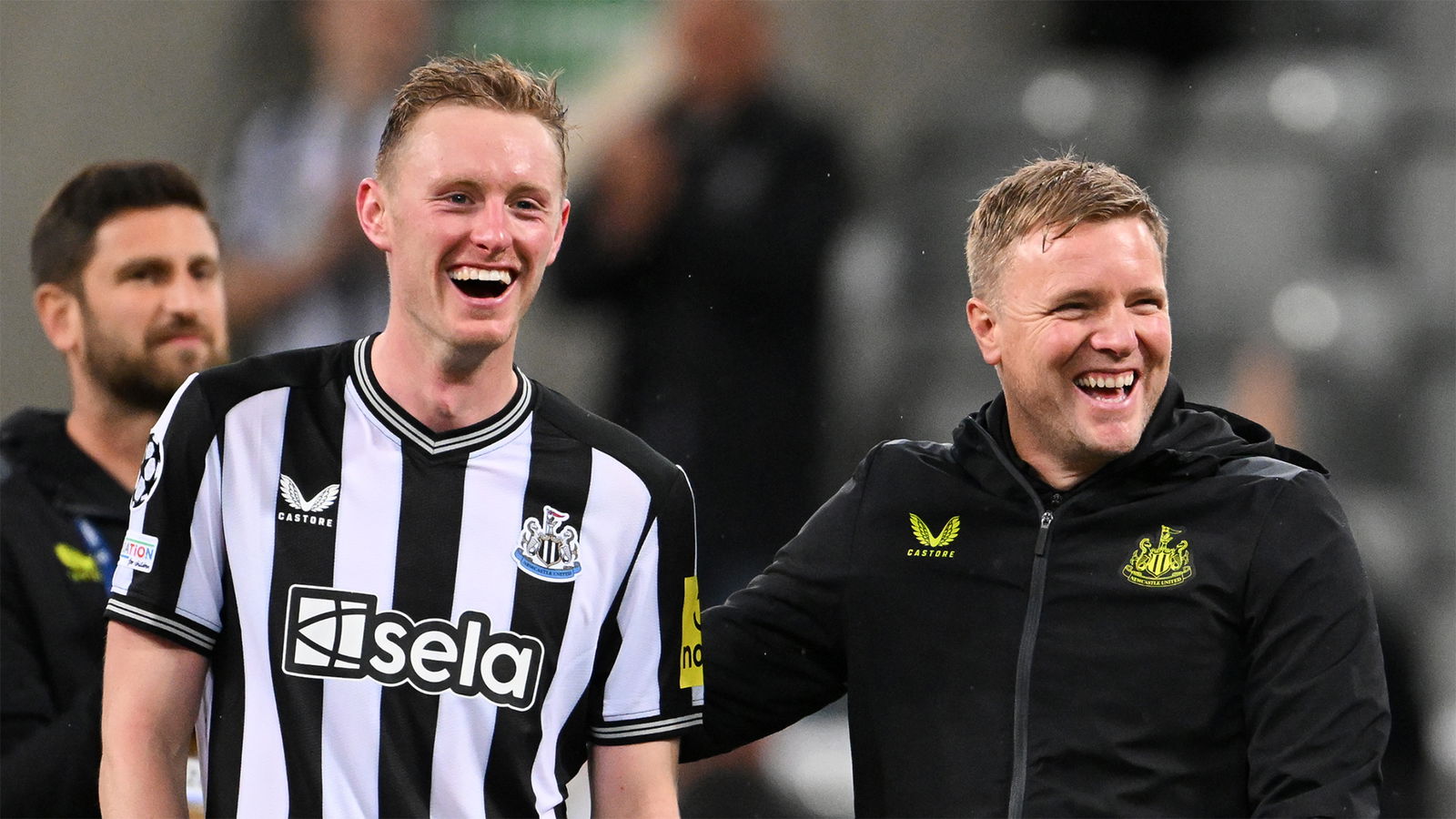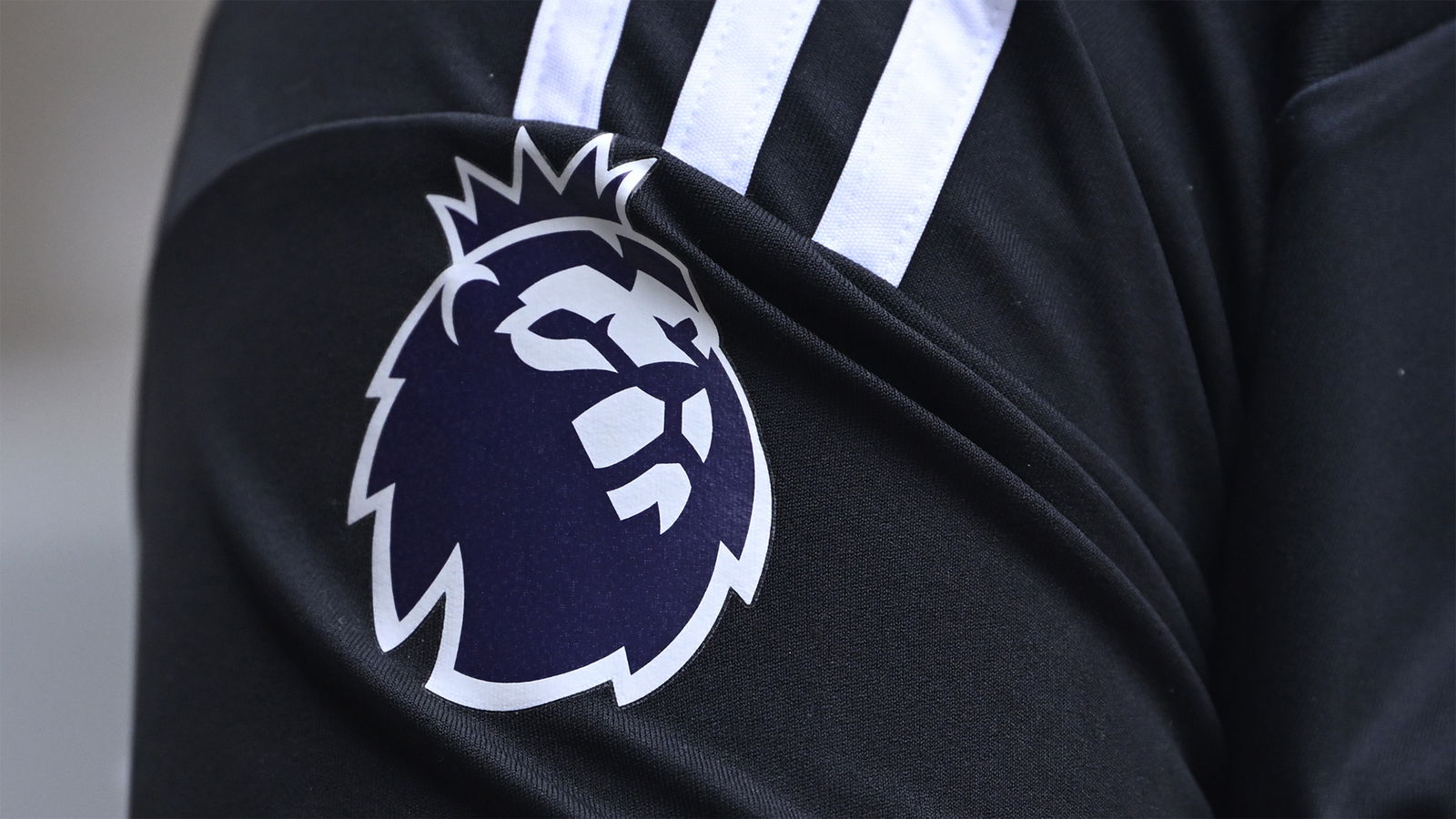ARTICLE AD
Reading the comments from Everton fans, Jarrad Branthwaite is quite clearly their best player.
Having conceded 14 goals in their opening five Premier League matches, including six in their two home matches against Brighton and Bournemouth, that vastly improved last weekend.
Jarrad Branthwaite came back into the Everton side for the first time since groin surgery in the summer and whilst they also carried massive luck, Sean Dyche’s side scrambled an eventual 2-1 victory over Palace, thanks overwhelmingly to Branthwaite’s contribution.
Whilst Sean Dyche didn’t mention it on Thursday at his press conference (see below), it has now been reported by The Guardian and others that Jarrad Branthwaite has had an injury setback in training and will almost certainly miss today’s match against Newcastle United.
As he is their best player and so key to their relegation battle, there is no way Sean Dyche is going to take any risks with his star defender.
His value to the Everton side is undeniable and he is literally worth a point per match on average.
From the start of last (2023/24) season, in the Premier League, Everton have averaged 1.4 points per game with Jarrad Branthwaite, whilst only 0.4 points per match without him.
The Mag report – 3 October 2024:
There has been an official Everton injury update on Thursday afternoon.
This coming just 48 hours ahead of Newcastle United visiting Goodison Park.
Everton having picked up their first Premier League win of the season last weekend.
Whilst Newcastle United posted their best performance of the season so far, fully deserving their draw against Manchester City.
Everton boss Sean Dyche confirming that at least four players won’t be available for Saturday’s match.
Official Everton injury update ahead of Newcastle United match via club media – 3 October 2024:
Sean Dyche says he is hopeful Seamus Coleman will be nearing a return to action following the upcoming international break – but the Everton captain will not be available for Saturday’s clash with Newcastle United.
The Blues return to Goodison Park for a second successive game looking to build on a 2-1 comeback victory over Crystal Palace last time out.
But they will do so without Coleman, who suffered a calf injury while playing for the Republic of Ireland earlier this month, and fellow right-back Nathan Patterson, who registered an assist during another 60-minute outing for the Under-21s against Reading on Monday night, as he continues the final stage of his rehabilitation from a long-term hamstring injury.
Youssef Chermiti and Armando Broja (both foot) remain sidelined for the Toffees.
Speaking in Thursday’s pre-match press conference, Dyche said: “[Chermiti and Broja] are a bit longer, Coleman is a bit longer as well but not too much longer – we’re hopeful over the international break that he gets closer.
“Patto is more common sense now. He’s out training all of the time but he needs a game programme after being out for around six months. That was a longer-term situation but he’s making good progress and he’s training regularly – and so far, so good.”
Discussing the difference in approaches between Jarrad Branthwaite and Patterson’s rehabilitations, Dyche added: “Patto’s was a different kind of injury – it was quite a serious injury, on a tendon, which is unusual. He needed surgery on a tendon which you have to be careful with on the recovery, so therefore he needs more time. Coming back to true fitness and game sharpness, six months is a long time to be out, so there’s a games programme rather than one game.
“He hadn’t done as much of the support training, so although he could play a bit quicker than Jarrad, he hadn’t done as many hours on the support side – the sports science – side of things.
“All of these things have to be calculated. Still, we made a decision on Jarrad – he felt good, he felt right and Patto, we know and he knows, is still searching for that true fitness and sharpness. There’s more to it than literally injury for injury – they’re different kinds of injuries so they were treated differently and the recoveries were treated differently as well.”

 

.png) 1 month ago
20
1 month ago
20 

